Australia is the only Commonwealth country that does not have a treaty with its indigenous peoples and interestingly, its states are leading the charge towards one. The tax-funded Australian Broadcasting Corporation's editor of Indigenous affairs, Stan Grant, says that while there is still a "big debate" around the question of Indigenous recognition in the constitution, several states have begun working on treaties with their Indigenous communities. An Aboriginal man himself, Grant says many Indigenous people say they would prefer to see treaties first. Indigenous Affairs Minister Nigel Scullion insists the federal government will consider a treaty if that's what indigenous people want.
There are treaty negotiations underway in Victoria and South Australia, and the
Northern Territory, a third of whose 244,000 population are Aboriginal, the highest proportion
of any state or territory, has said it wants to proceed
as well to negotiating a treaty.
"But whoever signs the first agreement, it will be the first such treaty
in Australia," Grant said.
South Australia’s Labor state government has just started treaty discussions with that state's Aboriginal nations "to help address past injustices". It has set aside $4.4 million over five years to support the treaty process and the appointment of an independent commissioner for treaty.
At this stage it is unclear what the treaties will cover or whether
compensation will be included, but South Australian indigenous leaders said the
process would set a positive course for the future. Major Sumner, a Ngarrindjeri man at the Murray mouth, said the word treaty
alone has important meaning. "Even just with a mention of treaty, that opens up a different world
for us to talk and put things in place, do all sorts of negotiations around how
we structure our lives," he said.
South
Australia could get up to 40 treaties. “Treaty is an important step
towards addressing the wrongs of the past. The fact that so many Aboriginal people
to this day face such significant disadvantage remains the greatest stain on
our society,” the South Australian Minister for Aboriginal Affairs and
Reconciliation, Kyam Maher, himself an Aborigine, said. Maher says he expects the first treaty to
be negotiated within one year.
"This marks the first time that a state has committed to individualised
treaties for Aboriginal communities, and comes off the back of yesterday’s
announcement in Victoria of plans for a statewide treaty."
“The treaty means a lot to me and my people and we’ll be looking forward to try to get it going,” he said. “What the treaty itself means is that part of it is giving recognition to the traditional people, the other part of it is looking at how we recognise the importance of ceremony and living a good, healthy life. It was exciting to hear that someone is listening to us.”
Adnyamathanha
man Terence
Coulthard said on national
indigenous radio that it would be “magnificent” if the South Australian
move led to a national treaty.
Challenges lie
ahead for the treaty negotiations in Victoria, the first
state to start the process in February.
The government there has indicated that a
legislative process to draw up a treaty could begin as early as next June, but
a clash of opinions seems to be holding the process back.
An interim working group was established mid-year, tasked with holding
community consultations across Victoria, and developing options for a
representative body that undertakes treaty negotiations. In the past six months
it has held talks in 10 locations.
Dissent voiced at the latest forum centred on the process of community consultations. Lidia Thorpe who was in the working group, but left when she thought her cultural integrity was being compromised, said the process had been badly managed. “We withdrew as a result of bad process, a bureaucratic run process, we put that in writing to the Minister for Aboriginal Affairs and the Premier, Daniel Andrews, and we still to this day don't have a response,” she said.
Attending on the day, Victorian woman Ellie told NITV News: “There’s certainly been a process that was selected that maybe hasn’t engaged at a community level that we’d normally expect. So that’s been difficult to reconcile, because the structures are there and in place to have those proper conversations, and it’s not entirely clear why that hasn’t happened.”
Community leader and facilitator Richard Frankland called for calm. He told NITV he believes the community wants to see the process through without lateral violence. “All our communities, right around the country, are seeking a dispute resolution process in our cultural shape. We wanna be able to resolve our disputes our way, without violence, without spiritual violence,” he said.
Ms Thorpe and others have been calling for greater inclusion of Elders’ voices. Victorian Aboriginal Affairs Minister Natalie Hutchens said the government had raised an Elder’s council with the working group. “That's something we asked the interim working group to have a look at, and report back on as well,” she said. “I think at the end of the day we could end up with an elected representative body, and an elder's group existing, there are a whole range of options that are going to be considered.”
The recorded forum process can be followed on a livestream channel online.
A South Australian Indigenous university professor says a huge emphasis put on compensation by mainstream media in the wake of the South Australian treaty announcement is a ‘detraction’ from the broader intent. Mainstream daily newspaper, the right-of-centre The Australian, flagship in Australia of global media mogul Rupert Murdoch, has warned of ‘looming compensation’ while a far-right and racist newspaper and radio commentator, Andrew Bolt, says the South Australian Premier Jay Weatherill is seeking to ‘retribalise the nation’.
“Not content with destroying his state's modern power supply,” Bolt wrote, “Premier Jay Weatherill continues his march back to the caves with a plan to retribalise the nation - signing a series of treaties with groups of Australians on the grounds of their Aboriginal ‘race’.
Ngarrindjeri man and Dean of Indigenous Strategy and Engagement at Flinders University in Adelaide, Daryle Rigney said on indigenous radio the Ngarrindjeri people have not put forward any position on compensation.
Australia
should create a seventh state run by Indigenous people, with its own
parliament and court system, Aboriginal lawyer and activist, Michael Mansell has proposed.
He suggested a new state could be established on land already controlled by
Aboriginal people, who have nominal ownership of about half of the Northern
Territory but can’t access resources such as minerals on it.
Mansell is based in the southernmost state, Tasmania, and says Aboriginal
people there are no closer to
establishing a treaty with the
Tasmanian state government despite discussions around
constitutional recognition progressing within the state.
An Aboriginal led meeting in Hobart, the Tasmanian capital, discussed reform
and recognition within the constitution and the possibility of implementing a
treaty.
Mansell, secretary of the Aboriginal
Provisional Government and a participant in the three day Aboriginal
dialogue, said while the meeting was positive, the reality of a treaty is still
a long way off.
Rodney
Dillon, Chair of the Tasmanian Aboriginal Community Alliance,
told Aboriginal CAAMA radio
in Alice Springs there needs to be more inclusiveness in the discussions, with
some Aboriginal people feeling left out.
Tasmania has joined the rest of the country in officially
recognising the state's first peoples, adding the "missing chapter"
to its constitution.
Like other states, Tasmania's constitution made no mention of the indigenous
inhabitants of the land. A change to formally recognise Aboriginal Tasmanians
unanimously passed state parliament in October.
Background:
Treaties with
Aboriginal sovereign nations & peoples of Australia
Films, video
& audio | Treaties with Aboriginal sovereign nations
Petitions, calls,
motions & policies | Treaties with Aboriginal sovereign peoples
Treaties events
- past, current & future
Treaties media statements | Treaties with Aboriginal sovereign peoples
iBook, research
projects & compilations
Collection of articles | Treaties with Aboriginal sovereign nations & peoples of Oz

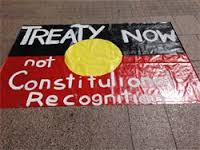

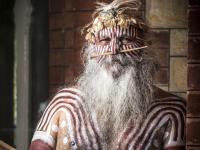
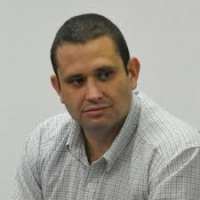
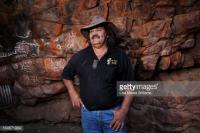
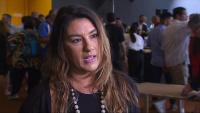
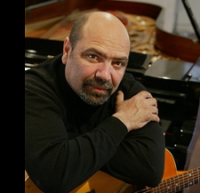
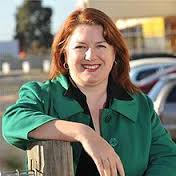
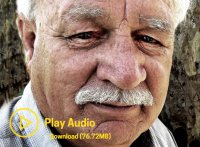
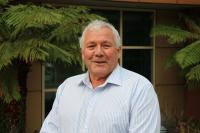

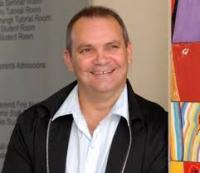
Australian coroner criticises 'inhumane' police treatment
Australian coroner criticises 'inhumane' police treatment before young woman’s death in custody
The West Australian coroner has ruled the treatment of 22-year-old Aboriginal woman Ms Dhu by police officers was "unprofessional and inhumane" prior to her death, and has agreed to release CCTV footage of her last hours in custody.
Her family will push for those involved in her "inhumane and unprofessional" treatment to be prosecuted after Coroner Ros Fogliani found her death could have been prevented if police and hospital staff had acted properly.
The family had fought hard for the video to be made public – “to show the world how my daughter died”, said her mother.
Ms Dhu, whose first name is not used for cultural reasons, died after being held at the South Hedland Police Station, where she was because she had not paid $3,622 in fines.
'Inhumane and unprofessional' - Shocking footage - Show the world how my daughter died - Coroner’s recommendations